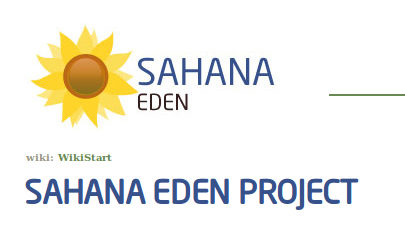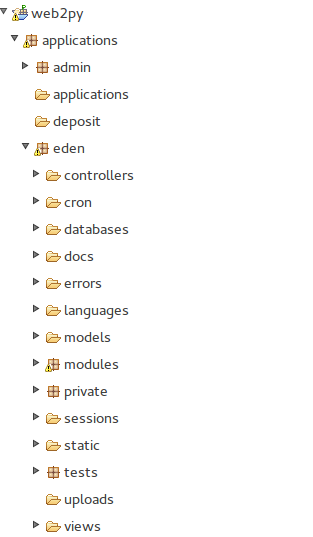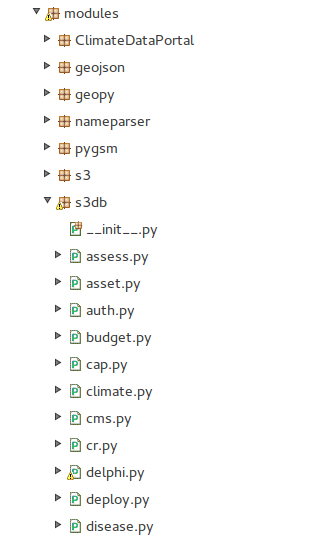CSC/ECE 517 Fall 2014/final S1455
This wiki page contains design details for the project for Sahana Eden Humanitarian Platform, on Central African Republic.
Background Information
About Sahana Eden
Sahana Eden is an Open Source Humanitarian Platform, which can be used to provide solutions for Disaster Management, Development, and Environmental Management sectors. It is supported by the Sahana Software Foundation, Used in many Deployments, such as Ebola, Kashmir Floods, Hurricane Sandy, just to name a few.
Installation & tutorials
Anyone who wishes to contribute their development skill to Sahana, can do so with the help of an elaborate guide they have provided, that covers everything from installation to tutorials on Python. Once the installations are complete, you can simply identify a task you are interested in, and start working on it. You may also want to sign their Contributor's License Agreement before making any pull request.
Getting to know the domain
Their domain page elaborately describes various major management projects and deployments that are done in the past or are ongoing. Spending some time to understand goals and purposes of Sahana before starting with actual development might help making the code better and more sensible from Sahana's perspective.
Introduction to project
Scope
Add/modify the core models in modules/s3db Add REST controllers for new models Check basic operations using automatic CRUD interface
tweak list_fields to the most-relevant fields perhaps
Add menu entries (modules/s3menus.py) Develop XSLT & CSV templates (static/formats/s3csv) to bulk import the data Convert the data to these CSV templates
use ogr2ogr for this
Add layers to the map (private/templates/<TEMPLATE>/gis_layer_feature.csv. Look at default for now) including Markers and tooltips (popup_format) Provide some report_options to make a meaningful report
Overview
Reference Material
System Overview
Sahana Eden is mainly implemented using Python, web2py, CSS and foundation. When you open the code in Eclipse, you can see that web2py is very much like Ruby on Rails. Analyze the screenshots below-
System Architecture
Requirement Analysis
Data and Component Design
Design Principles
Proposed Test Cases
References
Further Reading
Public Google Forum to discuss any development issues
 |

